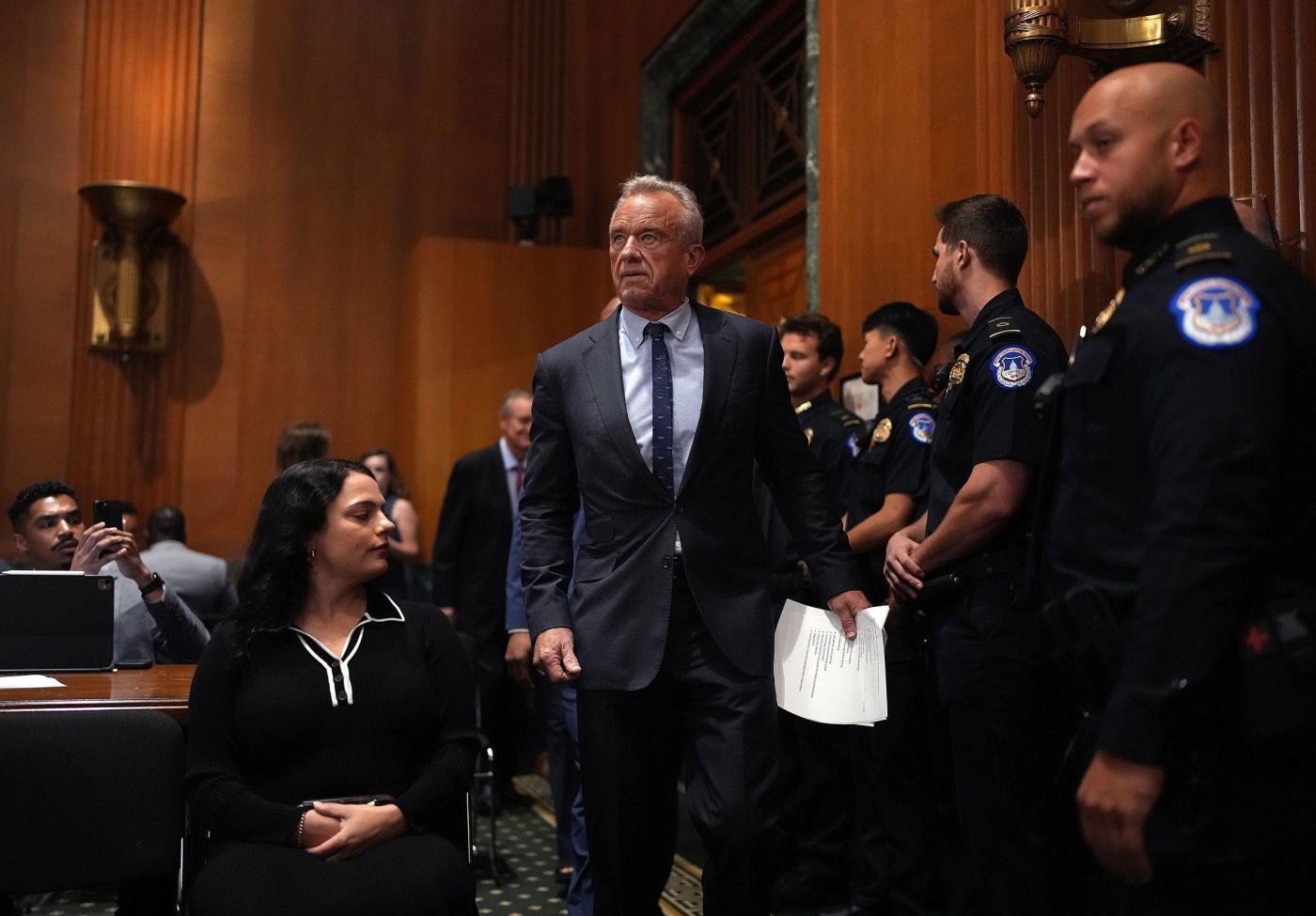
Who says political history can’t repeat itself?
President Donald Trump, his congressional Republican enablers and his highest profile Cabinet member are doing their best to ensure that the same issue that cost the GOP the House of Representatives eight years ago does so again in 2026 – health care.
In 2018, Democrats took advantage of the years-long Republican effort to repeal the Affordable Care Act that had given millions of Americans access to health insurance — along with the first Trump administration’s bureaucratic efforts to limit the Obamacare law.
Related Articles
US health care hiring slowdown is warning for broader job market
Los Gatos teenager raises funds for a cause close to his heart
When hospitals and insurers fight, patients get caught in the middle
EBMUD adopts new UV light technology to combat water quality threats
Kaiser healthcare workers in Oakland strike to demand better patient care
This time, they stand to benefit from GOP support for a series of unpopular health policies that will cost millions their health care coverage, increase the cost for others and, even worse, possibly trigger the kinds of childhood epidemics not seen in recent years.
That’s what Republicans are doing despite growing evidence their policies are unpopular with the voters, presumably hoping that redrawing congressional district lines in a handful of red states will forestall any possible 2026 blue wave.
Even in ruby red Florida, a recent poll showed strong opposition to the call by Gov. Ron DeSantis’ top health official for ending traditional requirements for childhood immunizations.
Orthodoxy > evidence
In large part, the GOP’s problem is the result of officials letting ideological orthodoxy overtake scientific evidence and proven success. “Trusting the experts is not a feature of either a science or democracy,” Kennedy said in a recent interview with Scripps News.
Here are the major aspects:
— The billion dollars in Medicaid cutbacks and the accompanying threats to rural hospitals in Trump’s misnamed Big Beautiful Bill.
These are how the GOP paid to make permanent the 2017 Trump tax cuts for the wealthiest Americans and biggest corporations. Contrary to GOP talking points, there never was a threat to retaining those cuts for lower- and middle-income Americans.
Polls consistently show more people oppose the bill than support it, and more people think their families would be hurt by it than helped.
But top GOP officials continue to falsely deny it cuts Medicaid, though its revised rules and new restrictions will cost that aid for thousands of poorer Americans. “There are no cuts to Medicaid,” Health and Human Services Secretary Robert F. Kennedy Jr. insisted to a Senate committee last week.
In fact, the Congressional Budget Office estimated that, because of the Medicaid provisions, the number of people without health insurance would increase by 7.8 million by 2034.
— The impact of Kennedy’s effort to reduce requirements for childhood vaccinations on the disproven grounds they cause more damage than provide protection.
“Effectively, we are denying people vaccines,” Sen. Bill Cassidy, R-La., told Kennedy during the hearing. “You’re wrong,” Kennedy replied.
A physician, Cassidy cast the crucial vote for Kennedy’s confirmation after receiving assurances he would not change the membership of an advisory panel on vaccines, a promise he subsequently broke.
Several senators noted that the government‘s failure to recommend vaccines in effect limits accessibility to them.
“If you don’t recommend, then the consequence of that in many states is that you can’t walk into a pharmacy and get one,” Sen. Elizabeth Warren, D-Mass., noted. “It means insurance companies don’t have to cover the $200 or so cost.”
Even the normally supportive Sen. John Barrasso of Wyoming, a doctor who is the No. 2 Senate Republican, said he was “deeply concerned” about Kennedy’s approach to vaccines.
Meanwhile, Florida Surgeon General Joseph A. Ladapo announced plans to revoke state requirements that school age children receive vaccinations, including immunizations against polio, measles, and diphtheria. “Every last one of them is wrong and drips with disdain and slavery,” he said.
Even Trump questioned that, telling reporters, “If you have vaccines that work…those vaccines should be used.”
Polls show the nation’s parents favor continuing to require vaccinations.
In a Washington Post-KFF poll this summer, more than four in five agreed that, other than some health and religious exemptions, public schools should require vaccinations against measles and polio. The proportion was almost identical among Florida parents as nationally.
Besides, experts say reducing immunizations would increase the diseases for which they provide protection. Already, Kennedy’s relaxed view of measles shots has been blamed for the extent of last Spring’s Texas measles outbreak.
— The potential end of tax credits that help many afford Obamacare premiums.
The credits, initially enacted during the COVID pandemic, expire at the end of 2025. Advocates say the Republican Congress’ failure to extend them would result in 4.2 million Americans losing health insurance.
Second thoughts
Last week, nine Republican House members from competitive districts introduced legislation to extend them for one year, until after the 2026 elections. Democrats strongly favor extension, but prospects are uncertain.
Rep. Jason Smith, R-Mo., chairman of the House Ways and Means Committee, said an extension would be “a big problem for a lot of my members” but conceded it could become part of the negotiation on extending government funding for the fiscal year starting Oct. 1.
Speaker Mike Johnson, R-La., left the door open to an extension. “I don’t love the policy, OK?” Johnson told Punchbowl News. “But I understand the political realities and the realities of people on the ground. And this is real to folks.”
Congressional Republicans already face having to defend Medicaid cuts and Kennedy’s anti-vaccine efforts. They may decide they don’t need another burden in an election where health care once more looms as crucial.
Carl P. Leubsdorf is the former Washington bureau chief of the Dallas Morning News. ©2025 The Dallas Morning News. Distributed by Tribune Content Agency.